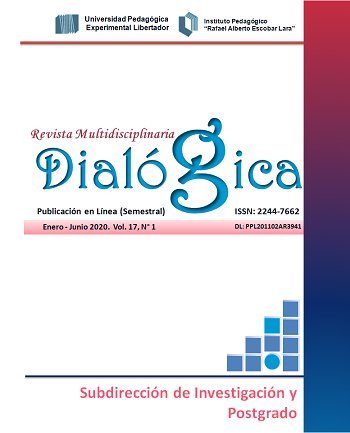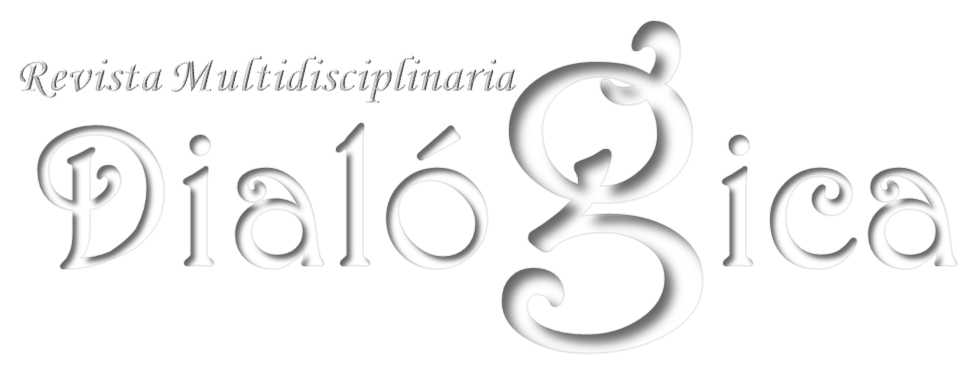ETHNOMATHEMATICAL AND EPISTEMOGRAPHIC ANALYSIS OF THE RATIONAL NUMBER OUTSIDE THE SCHOOL ENVIRONMENT
DOI:
https://doi.org/10.56219/dialgica.v17i1.1510Keywords:
Rational number, extracurricular activities, ethnomathematics, epistemographyAbstract
This article reports the study of the interpretations that 4th year high school students show about the rational number, and the definition commonly given in texts. The presence of performances in sports and cultural activities was examined in light of the constructs proposed by Gairin and Muñoz (2005) and Behr, Lesh, Post & Silver (1983). It was approached from Ethnomathematics as a theory, under the perspective of D’Ambrosio (1993) which enhances extra-scholar knowledge as a source of wealth in school work, complemented with Drouhard's Theory of Epistemography (2011). The qualitative approach was assumed, field work was carried out using observation, analysis and interpretation notes and the mathematical activities notebook. It was concluded that addressing the rational number linked to reality benefits its understanding, as well as introducing students to the different notions associated with the object.
References
Behr, M., Lesh, R., Post, T., y Silver, E. (1983). Rational-number concepts. En R. Lesh y M. Landau (Eds.). Acquisition of mathematics concepts and processes (pp. 91-126). Estados Unidos; New York.
D’Ambrosio, U. (2013). Etnomatemáticas. Entre las tradiciones y la modernidad. Madrid; España.
Drouhard, J. (2009). Epistemography and algebra [Documento en línea]. Disponible: http://ife.ens-lyon.fr/publications/edition-electronique/cerme6/wg4-07 drouhard.pdf [Consulta: 2014, Noviembre 5]
Drouhard, J. (2011). La Epistemografia: un útil al servicio de la didáctica de la matemática y de las ciencias. [Documento en línea]. Disponible: http://www.researchgate.net/publication/235677433_La_Epistemografa_un_til_al_servicio_de_la_didctica_de_la_matemtica_y_de_las_ciencias [Consulta: 2014, Octubre 27]
Fernández, L. (2006). ¿Cómo analizar datos cualitativos? [Documento en línea]. Disponible: http://www.ub.edu/ice/recerca/pdf/ficha7-cast.pdf [Consulta: 2015, Diciembre 13]
Flores, R. (2010). Significados asociados a la noción de fracción en la escuela secundaria. Tesis de grado, Instituto Politécnico Nacional, México D.F
Gairin, J. y Muñoz, J. (2005). El Número Racional Positivo en la Práctica Educativa: Estudio de una Propuesta [Documento en línea]. Editorial. IX SIMPOSIO SEIEM. Disponible: http://www.seiem.es/publicaciones/archivospublicaciones/comunicacionesgrupos/cd/grupos/grupopna/gairinmunoz.pdf [Consulta: 2013, Octubre 05]
Lira, R. (2012) Estudio de las Actividades Matemáticas Presentes en el Contexto Rural del Valle de San Isidro. Trabajo de grado de maestría, Universidad Pedagógica Experimental Libertador, Maracay.
Mancera, E. (1992). Significados y significantes relativos a las fracciones. Educación Matemática, 4(2), 30-54.
Reverand, E. (2005) Cognición, Cultura y Etnomatemática. En D. Mora (Coord.). Didáctica Crítica, Educación Crítica de las Matemáticas y Etnomatemática. Perspectivas para la transformación de la educación matemática en América Latina (pp. 353-369). Bolivia; La Paz.
Rojas, B. (2010). Investigación cualitativa, fundamentos y praxis. Venezuela; Caracas.


 @revistadialogica
@revistadialogica DialogicaUPEL
DialogicaUPEL RevistaDialogicaUPELMaracay
RevistaDialogicaUPELMaracay dialógicaupel@gmail.com
dialógicaupel@gmail.com dialogicaupel.blogspot.com
dialogicaupel.blogspot.com https://issuu.com/dialogicaupel
https://issuu.com/dialogicaupel https://revistas.upel.edu.ve/index.php/dialogica/
https://revistas.upel.edu.ve/index.php/dialogica/









